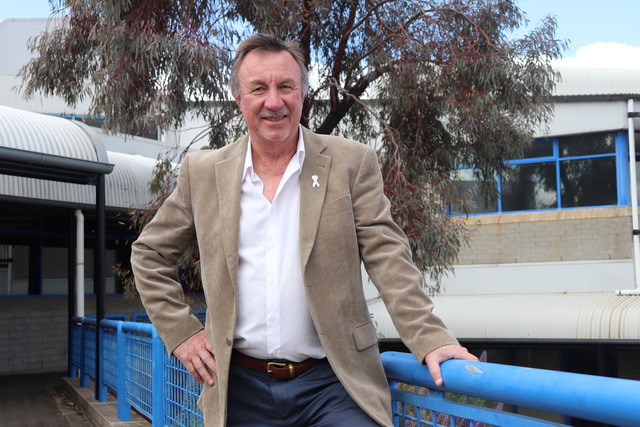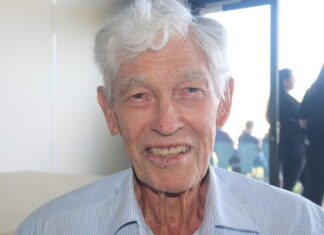After the murder of his daughter to domestic violence, Port Lincoln resident Ivan Phillips has been dedicated to promote change through the White Ribbon movement.
Ivan became an accredited White Ribbon ambassador in 2016, with the national campaign focused on trying to prevent violence perpetrated by men on women.
After he became an ambassador for the movement, Ivan decided to buy a motorcycle and ride the circumference of Australia to raise awareness of domestic violence and highlight the impact it had on his family.
In 2007, Ivan’s daughter Tash was murdered as a result of domestic violence, with his wife Dianne later passing away from brain cancer.
“Unfortunately I lost the two loves of my life far too prematurely, but it gave me motivation to take on something, like the White Ribbon ambassador role and motorcycle ride,” Ivan said.
“When I got back from the bike ride I was presented with the White Ribbon Ambassador of the Year Award at the Adelaide Convention Centre.
“Now I do a lot of talks for sporting groups, service providers and families all about the impact of domestic violence from a father and husband’s perspective.”
While he is not a trained professional on the topic of domestic violence, Ivan said he shares his personal story on how he dealt with the incident, what the signs were, how he and his family members’ lives were impacted and how they were able to move forward.
To eliminate domestic violence from society, Ivan said the path towards this goal was definitely through young men, as 93 per cent of domestic violence cases were from men towards women.
“It does happen both ways, but the overwhelming majority is men on women,” he said.
“To be able to get through to young men from the ages of 17 to 25, where we are at the stage where we can have some sort of influence over them is where I think we can have the greatest chance of change.”
When he addressed young men, Ivan said he showed them a picture of Tash on one of the slides in his slideshow, with one of the messages to get the point across that “real men don’t hit women”.
“I ask them to try and take Tash’s photo of the screen and put their sister’s face on the screen and that way it becomes realistic,” he said.
“Then I say, would you be happy if this happened to your sister and would you be happy with one of your mates to talk about your sister like some people talk about women at football and cricket clubs.
“The answer is obviously no and then I say why is it okay to treat other women like that then.”
As a parent Ivan said it was a bit hard to offer any advice to parents, as Tash was an independent woman when she was murdered.
“With the parents I tell them to look for signs, offer support and that there are many services that people can go to for support and assistance,” he said.
Along with young men, Ivan said he also enjoyed talking to young females and letting them know Tash’s story.
“They can relate to her story, as Tash was a young woman and the fact is when you are 16 and you get your first boyfriend, you imagine a white picket fence and a happy marriage and if there are red flags you may not acknowledge them,” he said.
When females hear certain words they do not like, Ivan said he encouraged them to challenge the people who said it.
“They shouldn’t challenge them in an aggressive way, just say what did you mean by that and start that important conversation,” he said.
Ivan added many women were scared to speak about domestic violence due to a fear of reprisals, but he said they would always be in a better position if they did speak than if they decided not to.
After some time following Tash’s murder Ivan let his family know of his desire to become a White Ribbon ambassador.
“For me to become an ambassador I needed to tell Tash’s story and I wanted to get the blessing of the family members to talk about the event and they unanimously allowed me to do it,” he said.
“I wasn’t used to public speaking, I was shy and nervous, but when I got on stage it was just natural.”








